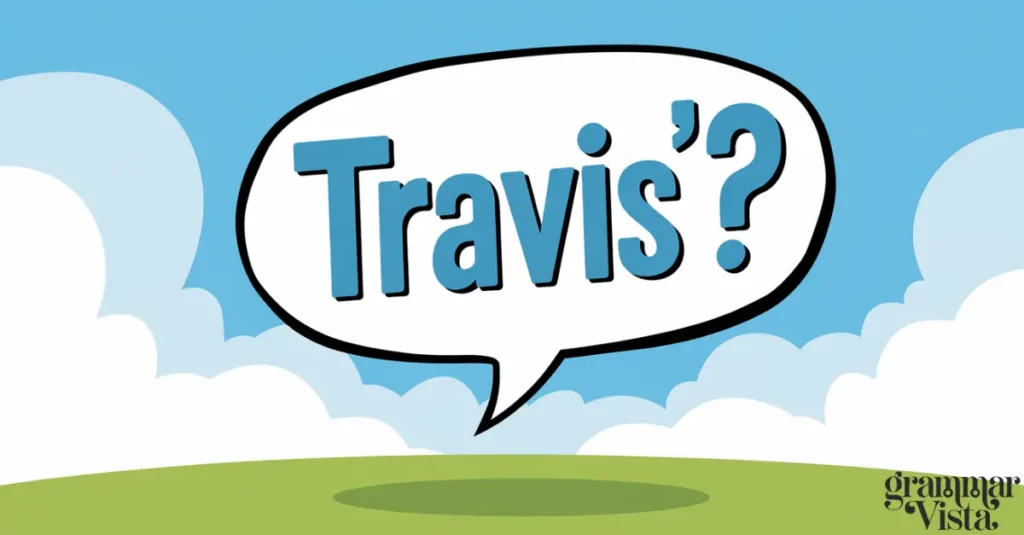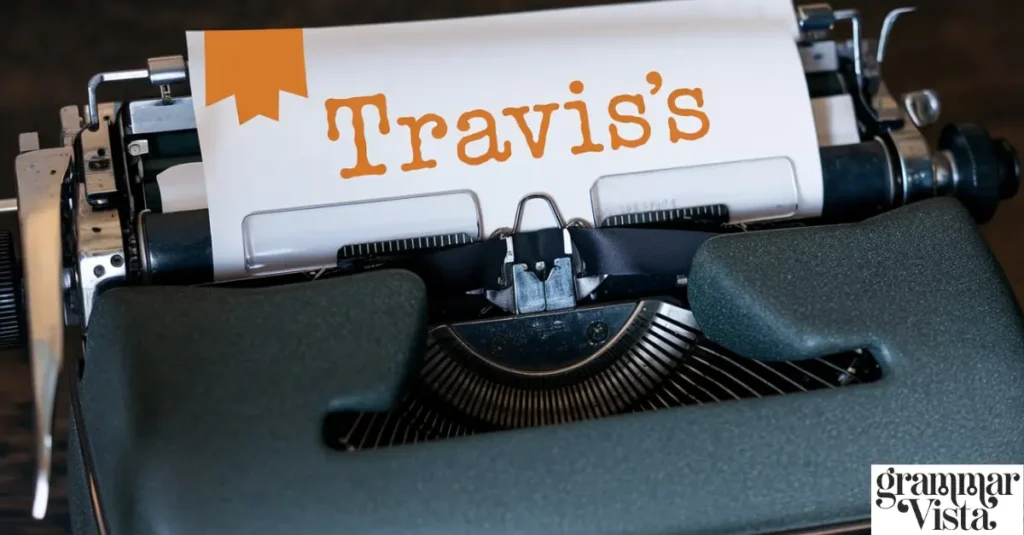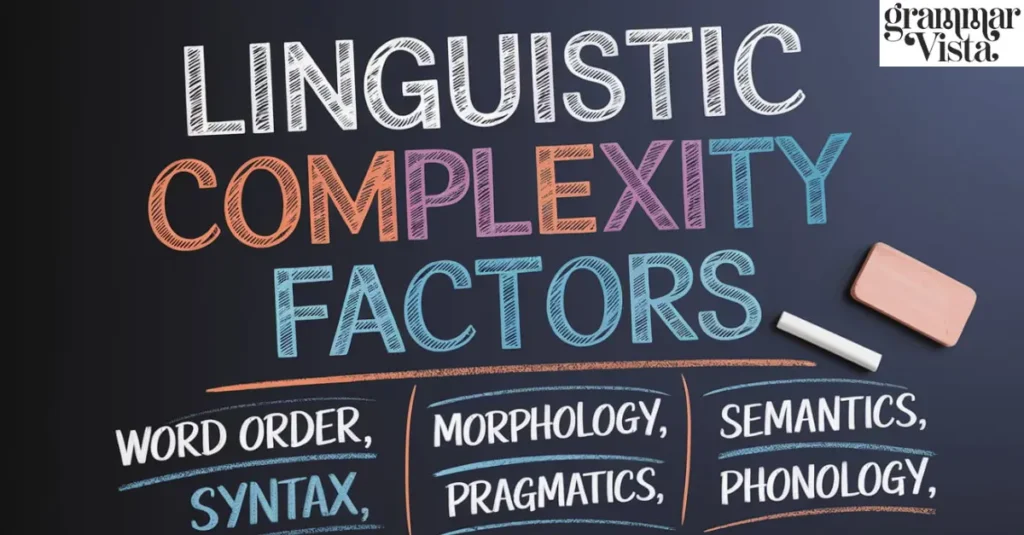Navigating the possessive maze can be tricky, especially with names like “Travis.” Should you use “Travis’s” or “Travis’?” Understanding the rules of possessive forms is crucial for clear writing. While “Travis’s” is often preferred for clarity, “Travis'” is also acceptable in some styles. In this guide, we’ll explore the nuances of possessive usage to help you confidently choose the correct form in your writing.
As a language enthusiast and seasoned writer, I’ve encountered countless debates about possessive forms that can leave even the most confident writers scratching their heads. Today, we’ll dive deep into the world of possessives, focusing specifically on names like Travis and the grammatical nuances that make many writers pause.
The Great Possessive Debate: Singular vs. Plural
Singular Possessive Forms

For singular possessive forms, different style guides offer varying recommendations:
- APA Style suggests using Travis’s (with an additional s)
- Chicago Manual of Style also recommends Travis’s
- Some traditional grammar rules prefer Travis’ (dropping the second s)
Example scenarios:
- Singular form: Travis’s car (AP and Chicago style)
- Singular ownership: Travis’ book (traditional style)
Plural Possessive Considerations

When dealing with the Travis family or multiple members, the rules shift slightly:
- Plural possessive: The Travises’ house
- Multiple members ownership: Travis’s family reunion
Style Guide Breakdown
APA Style Guide
In Travis’s style guide for journalism, the recommendation is clear. APA Style consistently advocates for adding ‘s to singular names ending in s. This means:
- Travis’s achievements
- James’s award
- Chris’s project
Chicago Manual of Style
The Chicago Manual of Style aligns closely with APA Style. For formal writing, they recommend:
- Adding ‘s to singular names
- Creating a consistent approach to possessives
Practical Examples and Scenarios
Let’s explore some real-world scenarios to illustrate possessive usage:
- Singular Ownership
- Travis’s car keys were left on the table
- Sarah said Travis’s presentation was impressive
- Plural Ownership
- The Travises’ family reunion was a grand affair
- All the Travises’ children attended the event
Read More about Business’ or Business’s?
Common Pitfalls and Tips
Language enthusiasts and writers should remember:
- Consistency is key
- Choose a style guide and stick to it
- Consider the context of your writing
Pronunciation Matters
How you pronounce the possessive can influence your choice:
- If you say “Travis-ez” → Use Travis’s
- If you say “Travis” → You might prefer Travis’
Special Considerations

Biblical and Classical Names
Some traditional rules differ for biblical or classical names:
- Jesus’ teachings
- Moses’ commandments
Professional Recommendations
Seasoned writers recommend:
- Check your specific style guide
- Maintain consistency throughout your document
- Consider your audience and publication standards
Advanced Possessive Considerations for Names Ending in S
Nuanced Grammatical Exceptions
While we’ve covered the basic rules, language enthusiasts often encounter more complex scenarios that require deeper understanding. Let’s explore some advanced considerations for possessive forms.
Pronunciation-Based Exceptions
Some names create unique challenges based on their phonetic structure:
- Names ending in a pronounced “s” sound
- Names with silent or soft “s” endings
- Compound names or hyphenated surnames
Example Scenarios:
- Miles’s journey
- Bridges’s construction
- Charles’s inheritance
You might be interested in Battery’s, Batteries’, or Batteries?
Academic and Professional Writing Perspectives
Academic Style Guides
Different academic disciplines often have unique approaches:
- Linguistic Research Guides
- Historical documentation standards
- Scholarly publication requirements
University-Specific Recommendations
- Harvard Style Guide
- MLA (Modern Language Association) Guidelines
- APA (American Psychological Association) Standards
Cultural and Regional Variations

International English Considerations
Possessive forms can vary significantly across different English-speaking regions:
- British English
- American English
- Australian English
- Canadian English
Technological and Digital Writing Context
Digital Style Guides
Modern writing platforms and digital style guides are increasingly flexible:
- Content management systems
- Online publishing platforms
- Digital style recommendation tools
Practical Exercise: Possessive Mastery
Challenging Scenarios
Test your possessive forms knowledge:
- Singular Name: Travis’s or Travis’ bicycle?
- Plural Family: The Travises’ or Travis’s family reunion?
- Compound Names: James-Williams’s or James-Williams’ property?
Professional Writing Tips
Seasoned writers recommend:
- Consistency is paramount
- Context matters more than rigid rules
- Clarity trumps grammatical perfection
Technological Writing Tools
Recommended Grammar Assistance
- Grammarly
- ProWritingAid
- Hemingway Editor
These tools can help navigate complex possessive forms and provide real-time suggestions.
Historical Evolution of Possessive Rules
Linguistic Transformation
The rules for possessives have evolved:
- Early 20th-century strict guidelines
- Mid-century flexible approaches
- Contemporary nuanced interpretations
Professional Style Guide Comparison
| Style Guide | Singular Possessive | Plural Possessive | Special Notes |
| APA Style | Travis’s | The Travises’ | Journalism standard |
| Chicago Manual | Travis’s | The Travises’ | Academic preference |
| MLA | Travis’s | The Travises’ | Academic writing |
| APA | Travis’s | The Travises’ | Research publications |
Linguistic Complexity Factors

Perplexity in Possessive Formation
Language complexity involves:
- Phonetic considerations
- Cultural linguistic variations
- Historical grammatical developments
Training Exercises for Writers
Possessive Mastery Techniques
- Read style guides extensively
- Practice with various name scenarios
- Develop a personal style guide
- Seek professional editing feedback
Technological Implications
AI and Grammar Tools
Modern AI writing assistants are increasingly sophisticated in handling:
- Complex possessive formations
- Contextual grammar recommendations
- Real-time style guide compliance
Psychological Aspects of Grammar
Writer’s Confidence
Understanding possessive forms can:
- Boost writing confidence
- Improve professional communication
- Enhance linguistic credibility
Read More grammar lessons on GrammarVista
Future of Grammatical Standards
Emerging Trends
- More flexible style guidelines
- Digital-first writing approaches
- Global English standardization efforts







